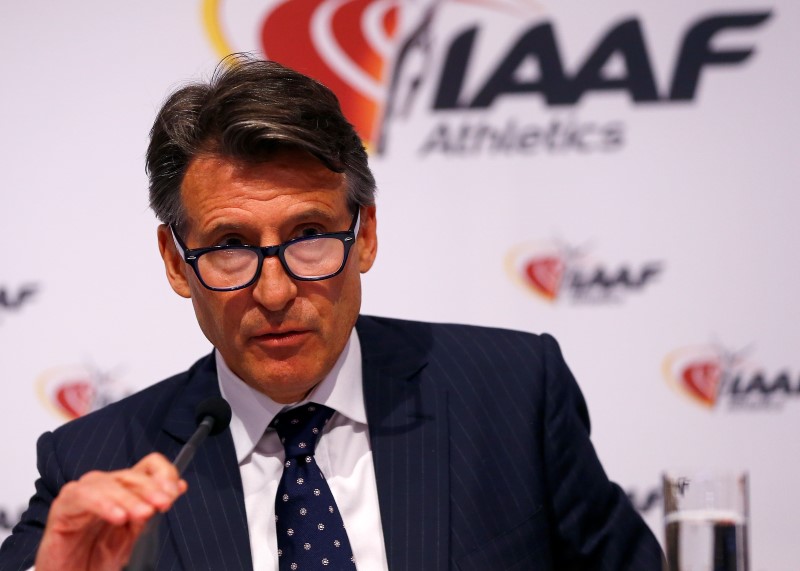By Mitch Phillips
LONDON (Reuters) - The IAAF's Ethics Board has backed Sebastian Coe after the president of athletics' governing body denied discussing rumours that Qatari officials had been paying bribes in a bid to secure hosting rights for the 2017 world championships.
The Board said on Monday it had found no evidence of bribery attempts or that International Association of Athletics Federations President (IAAF) Coe had been aware or discussed them.
It would not be opening a formal investigation into the process, which ended with London being selected as host city, he said.
Ed Warner, Chairman of UK Athletics, told BBC Radio in January that the night before the IAAF Council's vote on the awarding of the 2017 championships in November 2011, he (as the head of the successful London bid team) was informed by a "senior person within the IAAF" of rumours that IAAF Council members were being called to receive "brown envelopes" containing cash from the Qatari delegation.
Warner repeated the claim in a British Parliamentary hearing and later told the Ethics Board that the senior person was Coe, who at the time was head of the 2012 Olympics and IAAF vice president
A statement issued by the Ethics Board on Monday said that Coe had told the board that he had "no recollection of hearing such a rumour or therefore of communicating it to Mr Warner".
The Board contacted four witnesses and all members of the IAAF Council at the time, none of whom supported Warner's claim.
The statement said the purpose of the Board's preliminary investigation was to determine if there was enough evidence to establish that cash payments may have been made with improper intent or to have influenced the integrity of the award decision for the 2017 World championships.
"The Ethics Board could not make such determination simply on the basis of any rumours that may have been circulating in or about November 2011 and nothing more.
"As a result of its preliminary investigations, and noting that there is no documentary evidence to corroborate Mr Warner's recollection, the Ethics Board does not consider that it has sufficient evidence at present to open, under its procedural rules, a formal investigation. "
